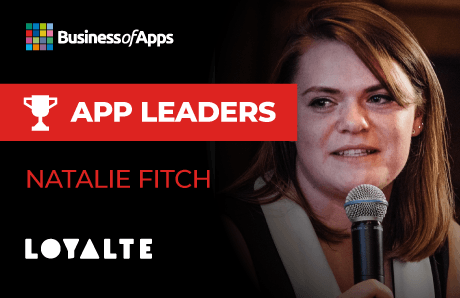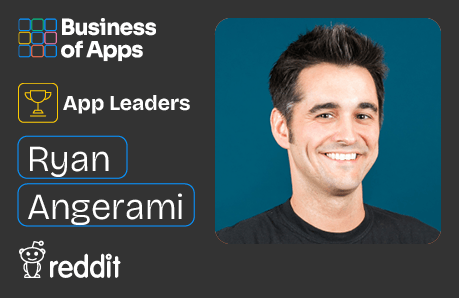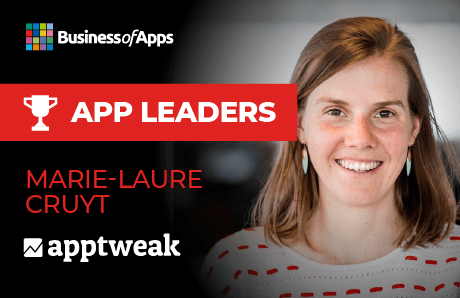Dieter is a serial entrepreneur, business angel, and the co-founder and CEO of ContextSDK, an on-device AI startup focused on intent detection based on real-world context that helps mobile apps boost engagement and conversions through real-world, context-aware interactions.
In your own words, what’s your role in the app business right now?
I’m currently focused on unlocking a significant, yet often overlooked, opportunity in mobile growth: real-world user context. While many apps have optimized their operations based on server-side data, there’s still vast potential in making apps more responsive to users’ immediate, real-world contexts.
At ContextSDK, we’re building tools that enable apps to adapt instantaneously, using on-device AI to enhance user experiences and improve conversion rates without compromising privacy. My role is to drive this vision forward, helping teams transition from static user journeys to dynamic, context-aware interactions.
How did you end up working in apps?
My journey in the app space took a new turn when my co-founder, Felix Krause — best known for founding fastlane, an open-source tool that automates iOS deployment and was acquired by Twitter and then Google — approached me with the idea behind ContextSDK.
Felix had been exploring how apps could become more intelligent by understanding the real-world context of how users interact with them in everyday life. That vision immediately resonated with me. It felt like a massive, untapped opportunity, and we teamed up to turn the idea into a product and build a meaningful company around it.
What are you most excited about in apps right now?
Leveraging intent detection to drive smarter, more meaningful engagement is one of the most exciting developments in mobile right now. We’re finally moving beyond surface-level personalization toward a deeper understanding of what users actually want in a specific moment, and how ready they are to act. Apps are starting to move away from rigid funnels and toward adaptive user journeys that respond to real-time signals rather than just historical data.
Is there anyone you’d like to shout out to who has influenced your journey in the app industry?
My co-founder Felix, as well as our investor Eric Seufert, have been major influences. I also draw a lot of inspiration from other leaders in the app economy who have built amazing things, such as Jacob from RevenueCat and the team at AppLovin.
What’s in your app tech stack?
Pipedrive, Perplexity, ChatGPT, Calendly, tl;dv, ClickHouse, Google Suite, and many more that my technical co-founder Felix would mention.
What do you like most about working in apps?
What I love most is that the app economy never stands still and is constantly evolving. This dynamic environment forces you to stay curious, adapt quickly, and think a few steps ahead.
I also enjoy the combination of creativity and technical precision it takes to succeed in this space. Last but not least, smartphones are the Swiss Army knives of our time. We use them dozens of times a day to solve everyday problems, and apps are the gasoline that powers them on the world’s most important computing platform — mobile. Because of that, we get to move the needle on a global scale, and that is exciting.
What one thing would you change about the app industry?
Most apps today have optimized nearly everything on the server side, yet the moment of engagement with the user is often mistimed because it relies solely on historical or backend data. What is missing is a layer of real-world context. There is a huge opportunity to make timing smarter and more situational.
That is where on-device AI comes into play, analyzing real-time signals to identify the right moment for interactions such as in-app prompts or push notifications. Shifting from static rules to real-time intent unlocks a more relevant and, ultimately, more effective way to engage users.
If you weren’t working in apps what would you be doing?
I’m a deeply curious person by nature, so I’d definitely still be building something, ideally something meaningful that solves real problems and challenges the status quo. I also have a strong interest in teaching and mentoring. Sharing experiences with early-stage founders or students has always been incredibly fulfilling for me; it is another way to keep learning while hopefully helping others grow along the way.
iOS or Android?
iOS, I am an Apple fanboy.
What apps have been most useful to you over the last year?
AirBnB, UBER, Abukai, Spotify.
What’s on your Spotify playlist?
A wide mix of songs and genres.
Any TV show recommendations?
Chef’s Table.
Is there anything else we should know about you?
I’m a passionate foodie who loves exploring new cuisines, cooking for friends and family, and occasionally (okay, frequently) spamming my Instagram with food photos.
Do you know someone driving change and growth in the app industry? Nominate an app leader here.









